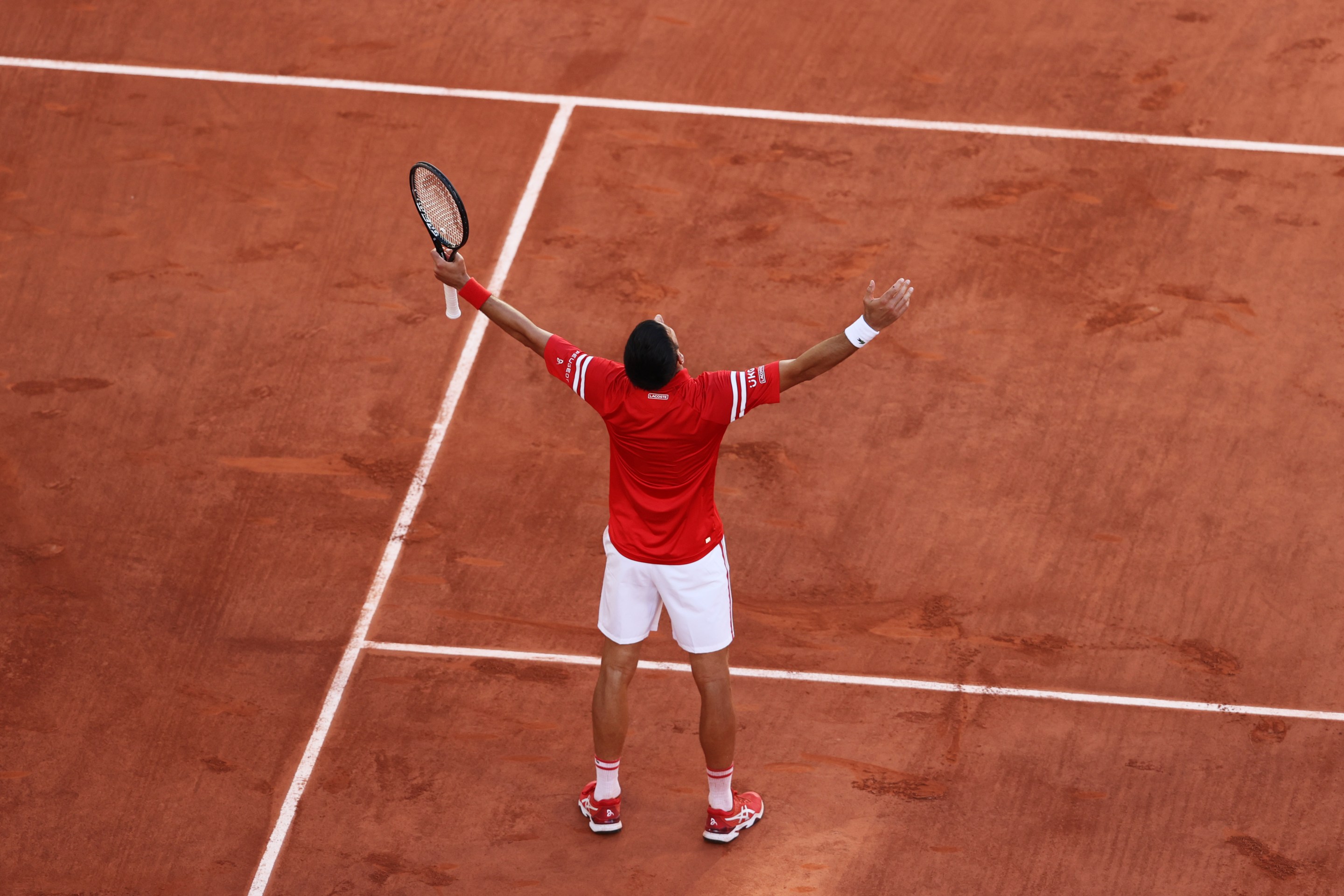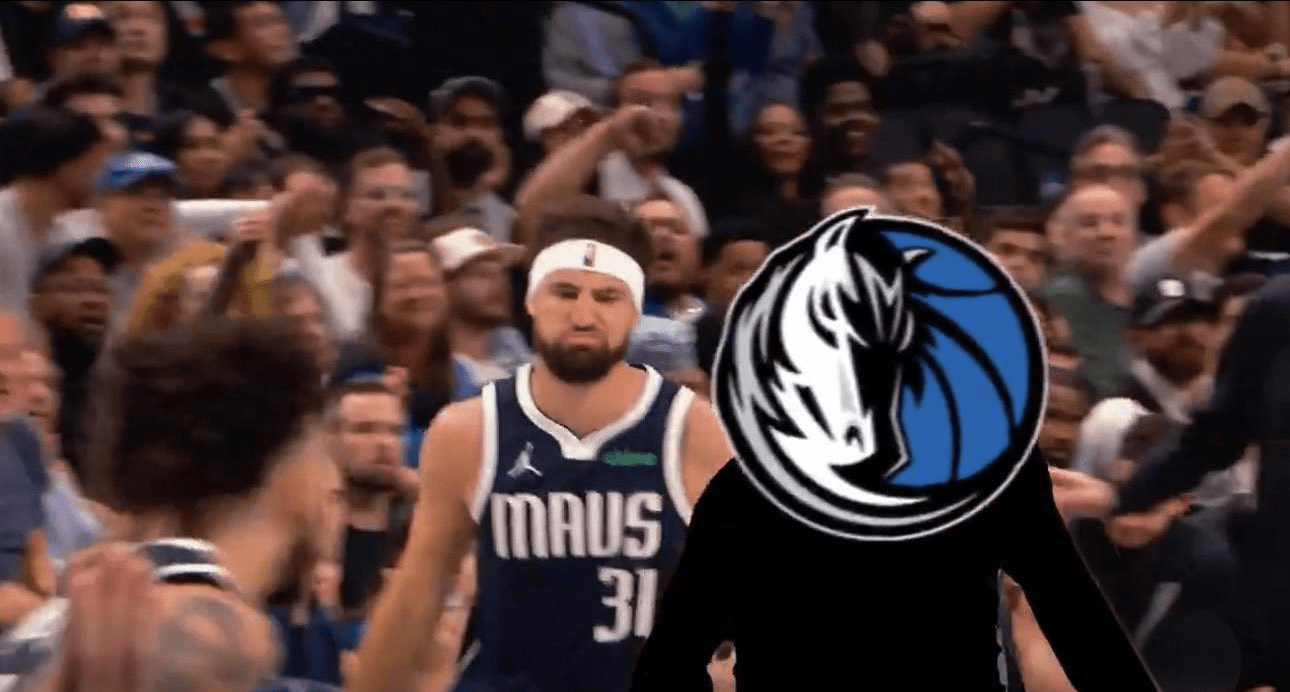Of all the things to feel for a 22-year-old athletic dynamo who just played about three sets worth of excellent tennis in a Grand Slam final and seems more or less guaranteed to collect the big trophy at some point, pity should be pretty far down the list. Maybe some combination of "Chin up" and "You'll get 'em next time" would be more in order. But that would be dishonest in this case. Because Stefanos Tsitsipas probably won't get 'em next time, so long as the 'em is Novak Djokovic. One gets gotten by Novak Djokovic, not the other way around.
This is not a new development in Djokovic's career, which has been defined by nothing so much as a pulverizing sense of inevitability, but like an adrenaline junkie searching out a novel kick, the 34-year-old set a record in his capture of major title No. 19. In this particular French Open run, the World No. 1 developed a taste for going down two sets before springing the trap: in the fourth round against the Italian 19-year-old Lorenzo Musetti, after the kid visibly ran out of gas; again versus Tsitsipas in the final, who did not run out of gas but simply couldn't maintain the extraordinary standard of execution needed to beat the best ever over the course of another set. It was the only major title run in the Open Era to involve two such comebacks. There is no shame for Tsitsipas in that 6-7, 2-6, 6-3, 6-2, 6-4 loss. There is only a grim sense of what is possible for these talented young players against Novak Djokovic, knowing that time might be their only ally in this fight—and even so, time is not pitching in all that enthusiastically.
Over the past decade it has become clear that Djokovic tactically solved tennis: If you can reach every ball hit to you and send it back heavy and deep, you will win a great number of matches, across surfaces, with a minimal amount of tweaking dials to account for conditions and opponents. The game plan is unimpeachable. But there are still occasional matches where it is the sheer level of play that startles, like the third set he played against Rafael Nadal in their semifinal, which reached a quality no two others in men's tennis could reach, or even recognize as the same game that they themselves play. Even at ages 34 and 35, Djokovic and Nadal can at times lapse into a different sport called Wide Tennis, in which all-world defense and offense form an unholy union, in which balls are retrieved from positions that no other player can reasonably be expected to reach, and sent back at speeds and angles that no other player could reasonably be expected to produce, over and over again. Even fellow elite players are baffled by it. It's totally alien. No other pair of players can make use of every square inch of the generous space on Philippe Chatrier quite like this. The court becomes a laboratory for experimental shots that otherwise would not ever have needed to occur; these shots only exist because the other guy exists. A fun exercise is to take one of those points and count how many junctures at which a normal top-10 player would've made an error or at least burped up something well short of blazing clean offense.
But aside from those rare matches, it's not the tactics that impress me most anymore. When it comes to Djokovic, in the year 2021, I can only get so much mileage about thinking about patterns of play. I know he's going to return the ball uncomfortably deep to the server's weaker wing with eerie consistency. I know he's going to stay parked right on top of the baseline no matter how heavy a ball is coming his way so that he can steal precious seconds away from his opponent until he can thump one at 70 percent pace right past them. I know no ball is out of reach. I know that backhand down the line is going to catch the back corner every time. I know with a decent degree of clarity what it looks like to get whooped by Novak Djokovic, on tennis terms. So now, after he has won every Slam twice, and every Masters twice, feats neither of his rivals achieved, I am mostly in awe of his psychology. The mind of Novak Djokovic is either completely empty or full of something impregnable. No prior event seems to color his view of the following event. Every point can be kept independent from the last, and he knows that he is favored in any given point of tennis against pretty much anyone ever. If anything, the dicier the scoreboard, the more convinced of its eventual success he seems to become.
"To be honest, I even liked the fact that I lost the first couple sets," he said after beating Musetti in five. "I like to play young guys in best-of-five, because I feel even if they are leading a set or two sets to love as it was the case today, I still like my chances," he said. Tsitsipas was similarly confused. "I don't think I relaxed, I don't think I changed much. I just kept the same pace. I kept the things that were working for me," he said after the final. "But it ended up, he left the court after two sets to love down, I don't know what happened there, but he came back to me a different player, suddenly. I don't know. I have no idea. He played really well. He gave me no space." There may not be space for another man on top of that major podium for the rest of the season.





